Water protests in North Kordofan
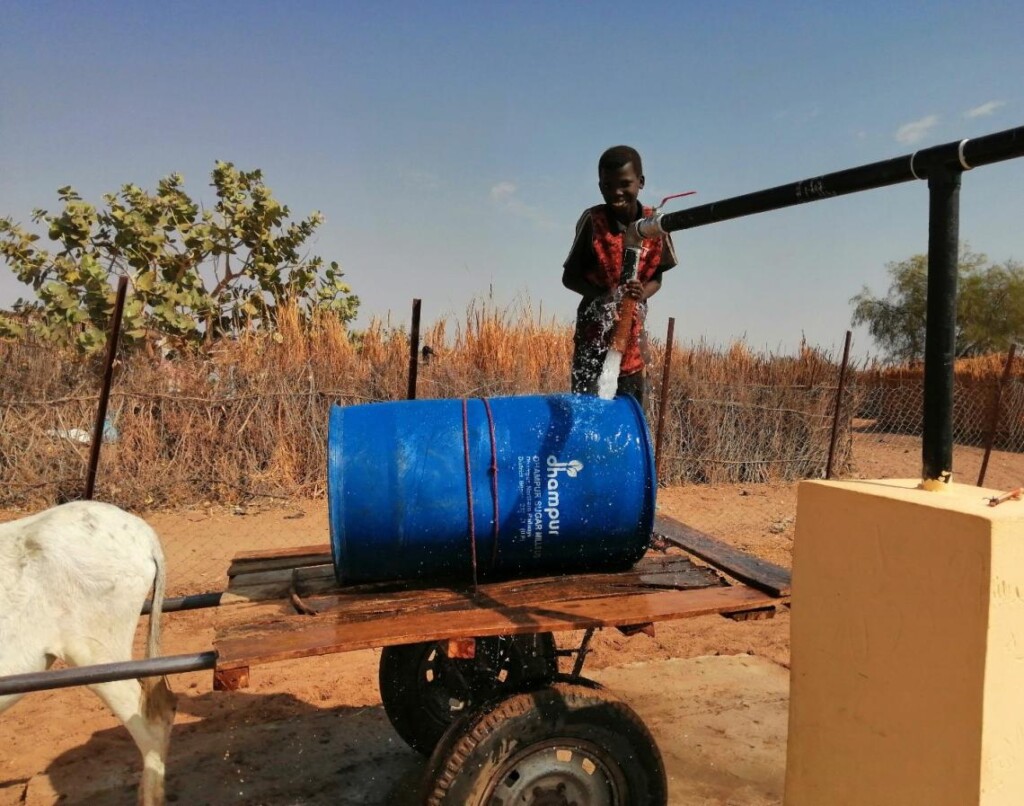
A child filling a water barrel in Sudan (file photo: UNICEF Sudan)
EL OBEID / EL GEDAREF – April 11, 2023
A large number of people have taken to the streets of El Obeid, the capital of North Kordofan, to protest the drinking water crisis that has plagued the city for over a month. El Gedaref is also witnessing water shortages due to droughts.
In the past three weeks, the situation has been particularly dire.
Protester Mohamed Ahmed told Radio Dabanga that the demonstrations are taking place after the breaking of the fast at sunset. Protesters set fire to tyres to block main roads.
“On Sunday evening, we blocked the airport road for several hours,” Ahmed said.
“El Obeid has not witnessed such large water shortages before. More than 50 per cent of the city’s neighbourhoods is affected. The price of a barrel of water now exceeds SDG 1,300.”
‘El Obeid has not witnessed such large water shortages before’ – Mohamed Ahmed
Ahmed attributed the crisis to failures by the administration and the lacking response to protest actions by North Kordofan’s civil servants who are calling for increased wages. “Their silent protest has entered its third month without the government moving a finger”.
“The impact of large budget sums allocated by the state government to the Ministry of Water did not appear,” he added.
Water crisis
Last month, the acting governor of North Kordofan directed the state’s Water Corporation to prepare early for the month of Ramadan and the summer and work to increase the water provision, amidst the current drinking water crisis. Activists criticised the government’s tactics.
Activists called the authorities’ statements “contradictory to the reality on the ground” and reported that the acute scarcity of water is continuing in most of the neighbourhoods of the state capital El Obeid, of which the population is estimated at nearly 800,000.
Journalist Ahmed Rabah told Radio Dabanga that “most neighbourhoods in the city do have a water network, but the water supply is just insufficient”. “In most neighbourhoods, people are still dependent on donkey carts selling drinking water.”
‘In most neighbourhoods, people are still dependent on donkey carts selling drinking water’ – Ahmed Rabah
He attributed the water crisis in the North Kordofan capital of El Obeid to the authorities’ lacking will to deal with the problem.
The problems are made more severe by the population increase due to the influx of displaced people who fled violence in Darfur and West and South Kordofan, and the arrival of more than 20,000 people from areas in the northern part of the state due to drought and desertification.
In a feature on climate change and one on illegal tree felling, Radio Dabanga warned about the dangers of desertification and more severe droughts or floods due to climate change, which could lead to mass displacement.
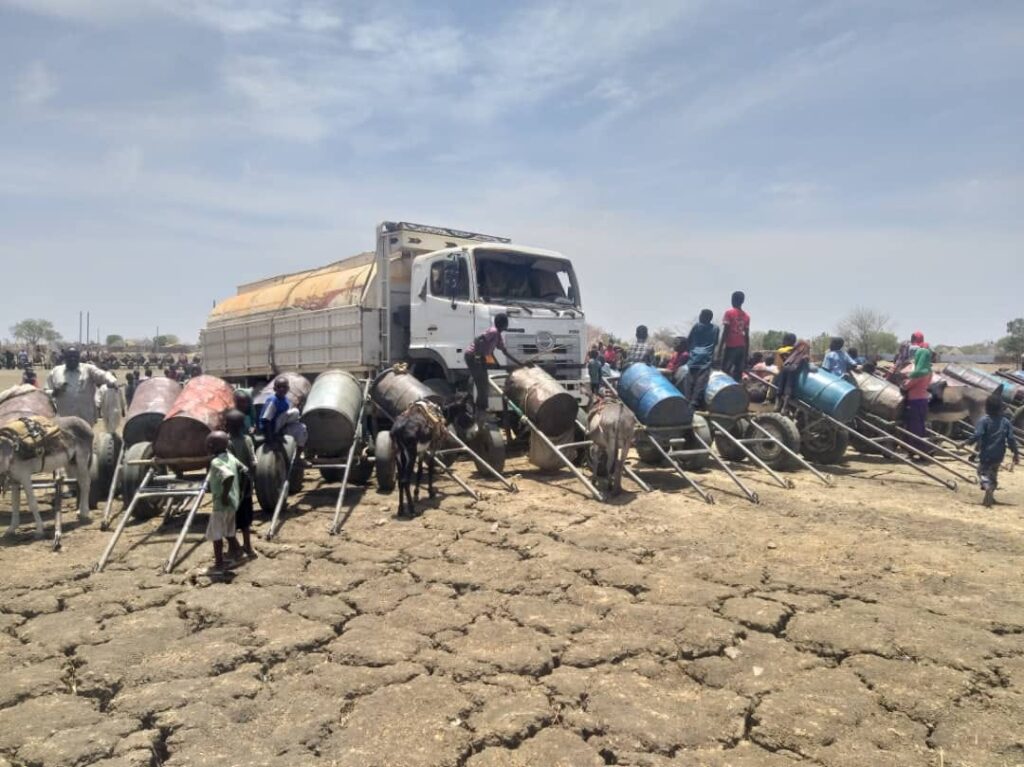
El Gedaref
North Kordofan is not the only area in Sudan that has to cope with water shortages. People living in the southwestern part of El Gedaref complain about an acute drinking water crisis as water well are becoming depleted.
Speaking to Radio Dabanga yesterday, activist Hasan Ahmed said that 12 villages in Gala’at El Nahal are suffering from serious water shortages. Water wells are no longer filled with water due to the low rates of rainfall during the last season and the migration of livestock, who drink from the wells.
“The villagers are forced to wait for water to be transported by tankers, which do not cover the needs of densely populated villages,” he said and warned of the worsening of the impacts of the crisis during the fasting month of Ramadan and generally the upcoming summer months.
‘The villagers are forced to wait for water to be transported by tankers’ – Hasan Ahmed
The activist also highlighted failures concerning the Wad El Egeili project, which supplies the area with water, due to the lack of maintenance and good management. He called on the government to intervene to rehabilitate the project.
Ahmed also warned of the dire consequences of drinking from wells that are contaminated with pesticides and stressed that it is necessary to dig new, safer wells.
Two weeks ago, the Residents and Displaced People Association of the villages around the Upper Atbara and Setit (Seteet) Dam Complex accused the Dams Implementation Unit and the El Gedaref state government of ignoring their plight regarding a chronic shortage of drinking water, despite their proximity to a reliable water source.
They demand that the infrastructure of pumps and water points be extended with increased capacity.
Camps for the displaced and villages in Darfur are also witnessing drinking water shortages and so are neighbourhoods in Port Sudan. The latter also face drinking water issues because of mining activities and attacks on infrastructure, rather than drought.







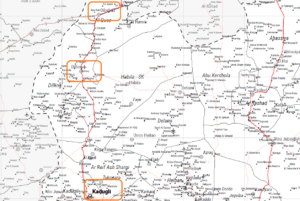
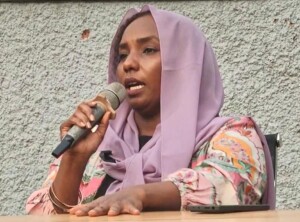
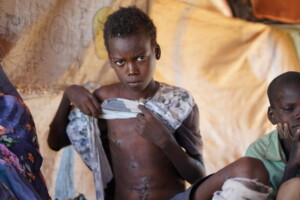

 and then
and then